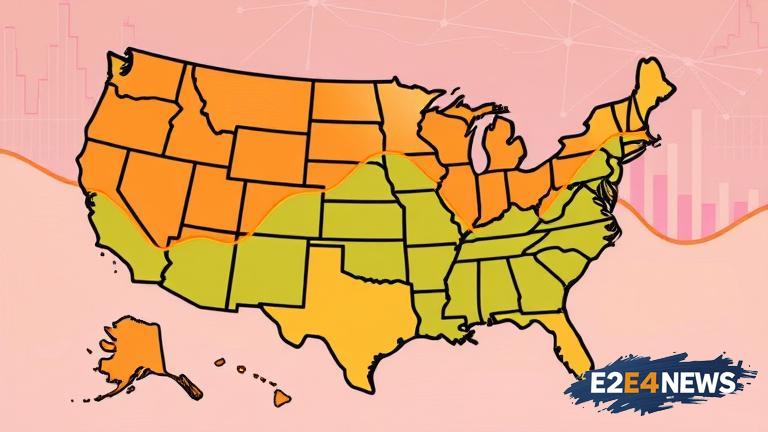The US economy has been facing significant challenges in recent months, with rising inflation and global uncertainty contributing to a slowdown. Despite efforts by the Federal Reserve to stimulate growth, the economy has been struggling to regain momentum. The latest reports indicate that the US economy grew at a slower pace than expected in the second quarter, with a growth rate of 2.1% compared to the previous quarter’s 2.5%. This slowdown has been attributed to a decline in consumer spending, which accounts for a significant portion of the US economy. The decline in consumer spending has been linked to rising inflation, which has eroded the purchasing power of consumers. The inflation rate has been steadily increasing, with the latest figures showing a 3.2% increase in the consumer price index. The rising inflation has been driven by a combination of factors, including a strong labor market and rising wages. However, the strong labor market has also been a source of concern, with many experts warning of a potential recession. The US labor market has been experiencing a period of rapid growth, with the unemployment rate falling to historic lows. However, this growth has been accompanied by rising wages, which has increased production costs for businesses. The rising production costs have been passed on to consumers in the form of higher prices, contributing to the rising inflation. The global uncertainty has also been a major factor contributing to the slowdown in the US economy. The ongoing trade tensions between the US and China have created uncertainty and disrupted global supply chains. The trade tensions have also had a negative impact on business confidence, with many businesses delaying investment decisions due to the uncertainty. The decline in business confidence has been reflected in the latest surveys, which show a significant decline in business sentiment. The US economy has also been affected by the slowdown in the global economy, with many countries experiencing a decline in economic growth. The International Monetary Fund (IMF) has warned of a potential global recession, citing the rising trade tensions and slowing economic growth. The US economy has been resilient in the face of global uncertainty, but the latest reports suggest that it is not immune to the slowdown. The Federal Reserve has been monitoring the situation closely and has taken steps to stimulate growth, including cutting interest rates. However, the effectiveness of these measures remains to be seen, and many experts are warning of a potential recession. The US government has also been taking steps to address the slowdown, including implementing fiscal policies to stimulate growth. However, the impact of these policies remains to be seen, and many experts are warning of a potential recession. The slowdown in the US economy has significant implications for the global economy, and many countries are closely watching the situation. The US is the world’s largest economy, and a recession in the US could have far-reaching consequences for the global economy. The latest reports suggest that the US economy is facing significant challenges, and it remains to be seen how it will respond to the slowdown. The US economy has been resilient in the face of adversity, but the latest reports suggest that it is facing significant challenges. The global uncertainty and rising inflation are major concerns, and it remains to be seen how the US economy will respond to these challenges.
